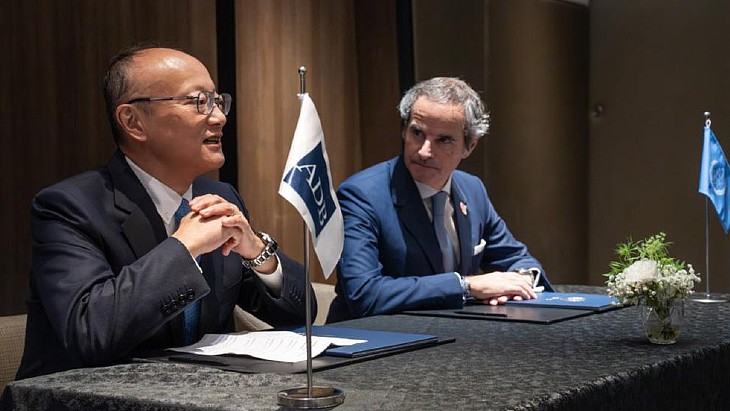Asian Development Bank (ADB) President Masato Kanda said: "These changes further enhance ADB’s ability to support countries in Asia and the Pacific as they work to meet their rapidly growing energy needs. Nuclear power, for example, is an important technology option for countries looking for reliable alternatives to baseload electricity."
Founded in 1966 and owned by 69 member states, including 50 from the region, ADB committed USD3.8 billion to energy projects in 2024. It says it aims to support "inclusive, resilient, and sustainable growth across Asia and the Pacific".
As part of the new policy, it has signed an agreement with the International Atomic Energy Agency (IAEA) to cooperate in supporting countries in Asia and the Pacific who are exploring nuclear energy as part of their energy and development strategies. Discussions will include identifying potential projects for collaboration, including those involving small modular reactors.
Kanda said: "With ADB’s updated energy policy recognising nuclear power as an alternative to fossil fuels for baseload generation, this agreement ensures that developing member countries choosing this path do so with robust safeguards, strong governance and a clear commitment to sustainability."
IAEA Director General Rafael Mariano Grossi said: "As ADB opens the door to financing nuclear power, we will move quickly to identify practical areas of collaboration that respond to rising energy needs of countries across the region … our teams will now begin shaping concrete initiatives that deliver reliable, low-carbon energy and strengthen resilience for millions of people."
The Asian Development Bank’s move to consider funding nuclear energy projects follows a similar one by the World Bank earlier this year, with the IAEA saying "it further broadens that international momentum, strengthening support for countries that are turning to nuclear energy to enhance energy access, security and resilience".
The memorandum of understanding with the IAEA will see the two "collaborate to build knowledge and technical capacity across the full nuclear life cycle. Key areas of cooperation include energy planning, the management of nuclear fuel cycles and radioactive waste, and nuclear facilities’ life-cycle management. The IAEA will also support informed decision-making by providing guidance on safety, security, safeguards, and stakeholder engagement".
The IAEA lists 37 countries as considering, planning or being in the process of introducing nuclear power into their energy mix.
Other amendments agreed to its energy policy mean the ADB can now finance projects that manage methane, and also expands its backing of carbon capture, utilisation, and storage (CCUS) to projects which use depleted gas and oil wells to store carbon dioxide.








_94566.jpeg)






